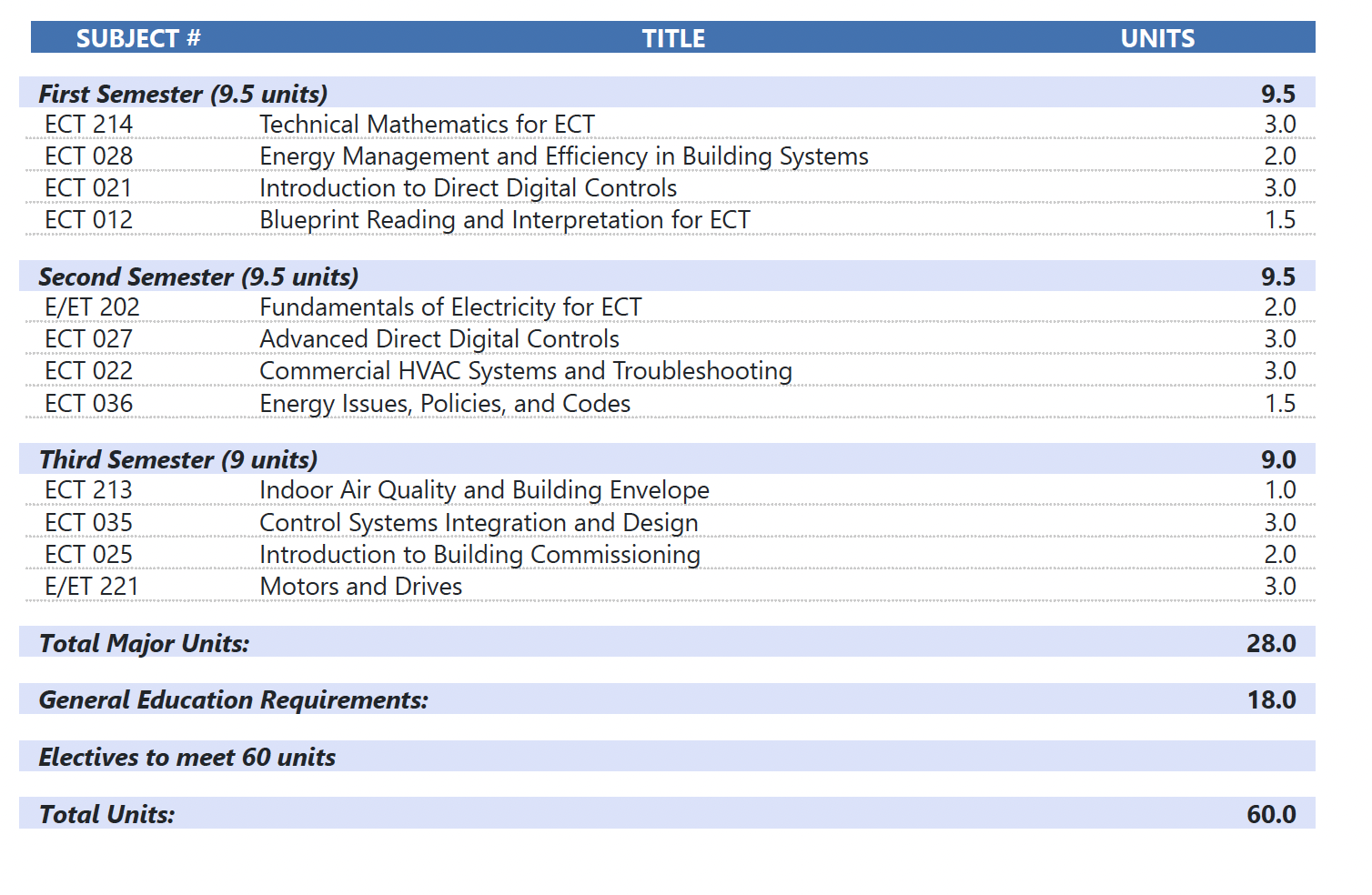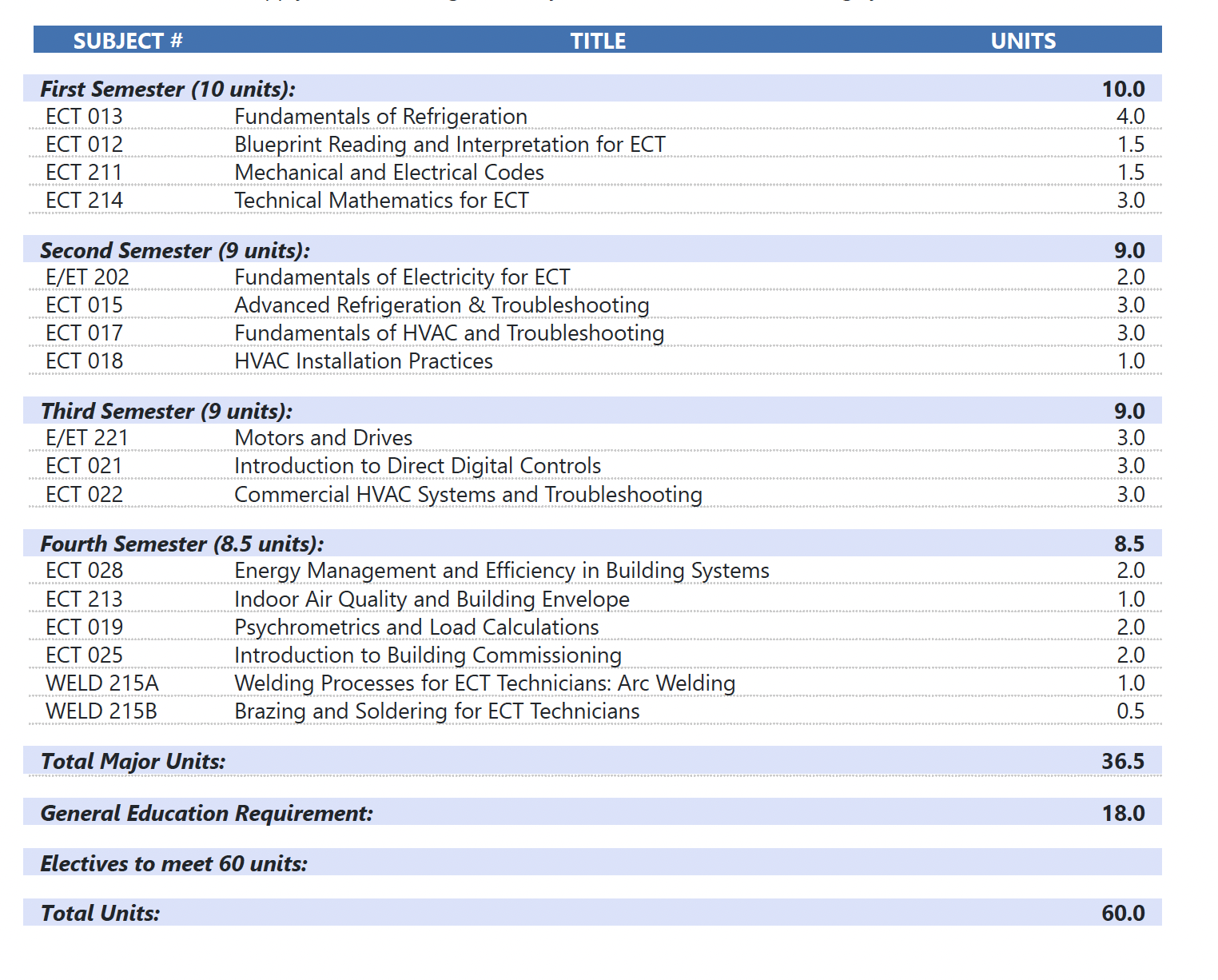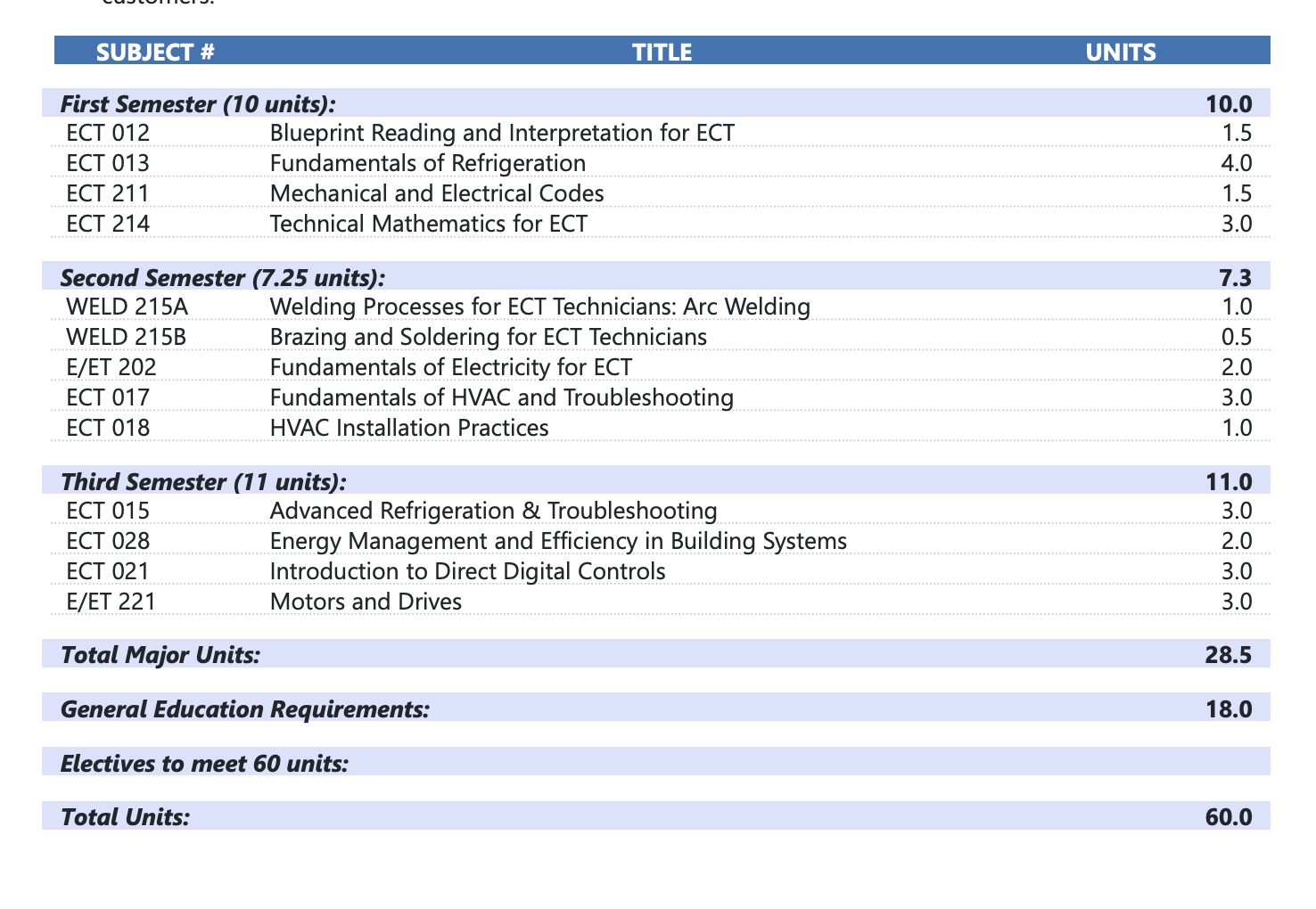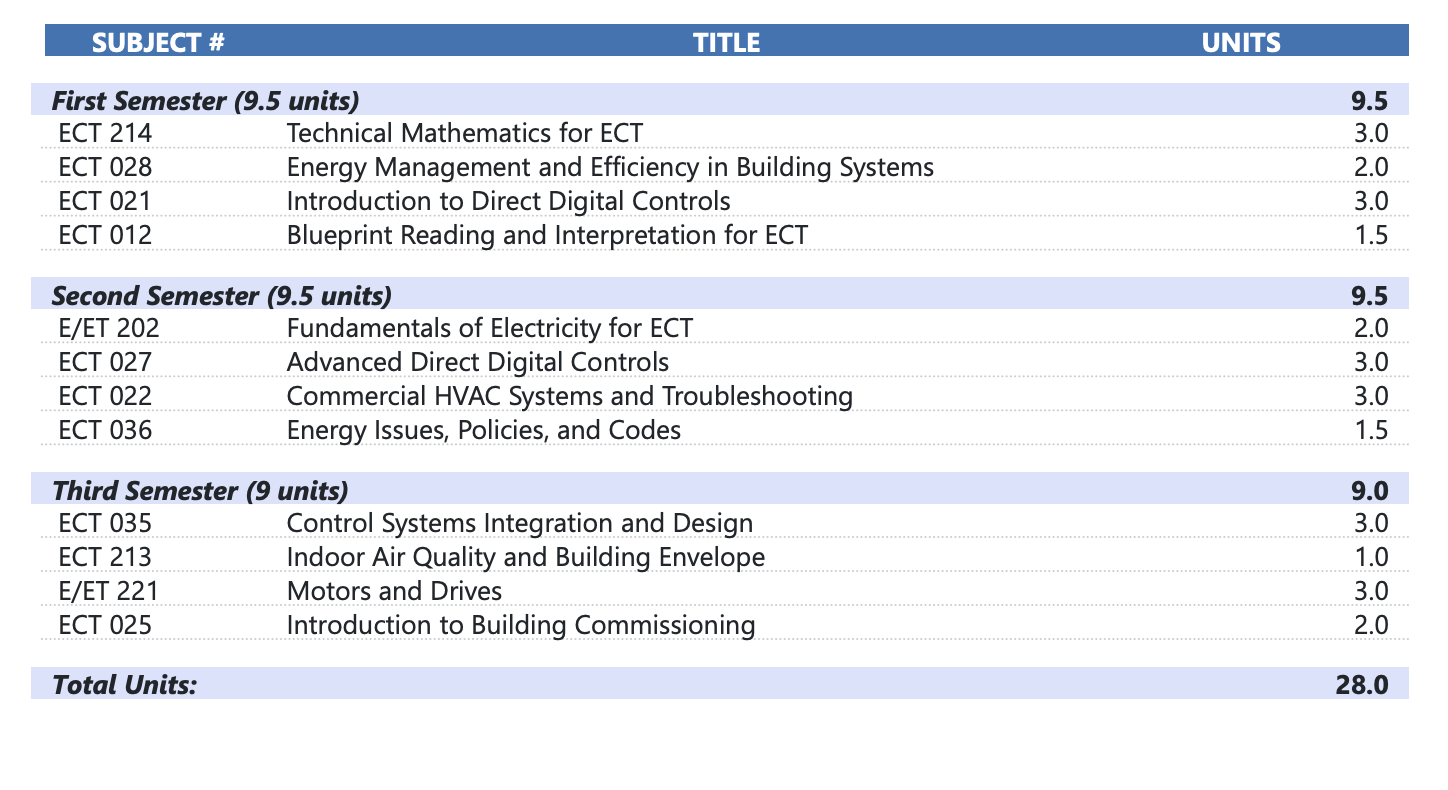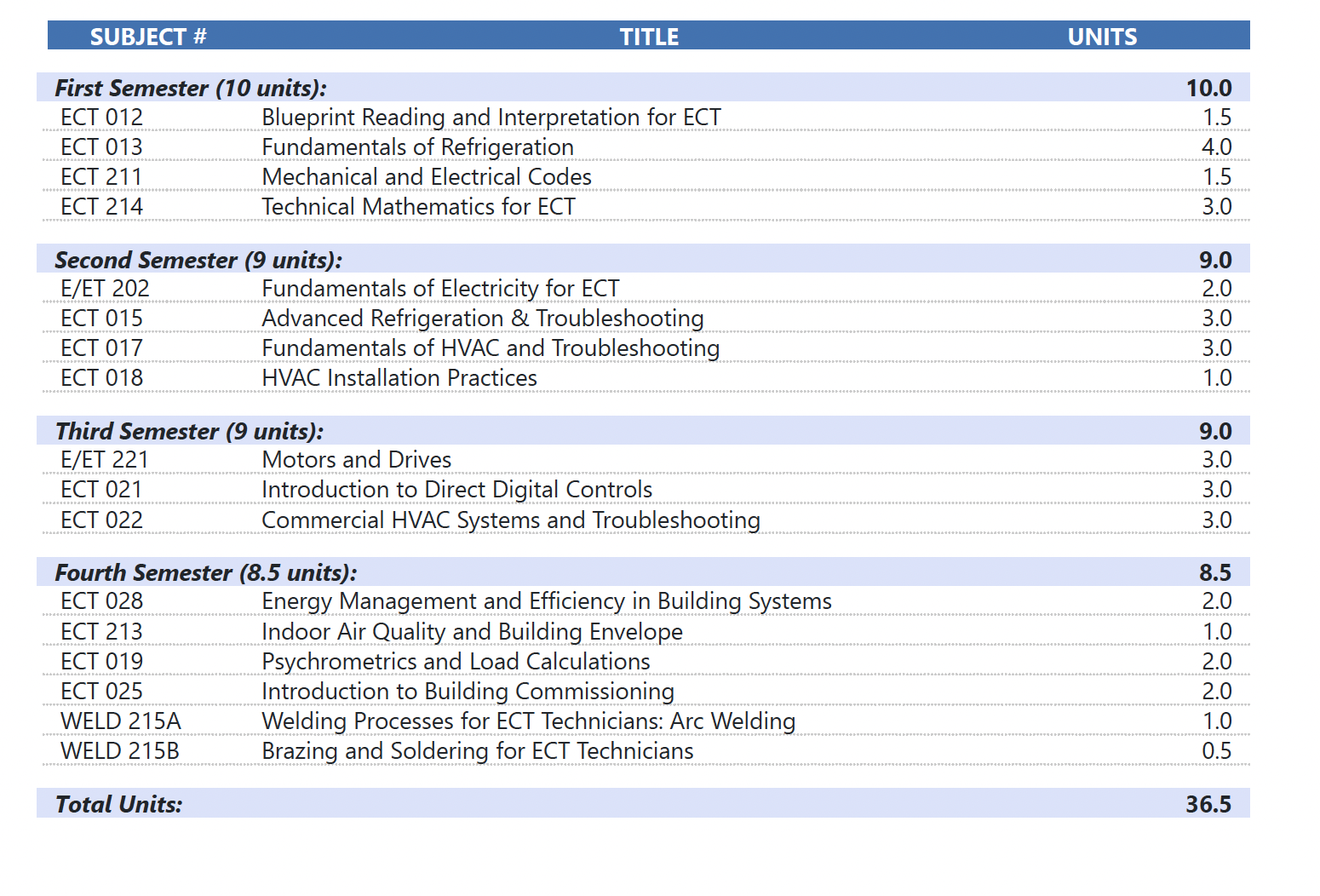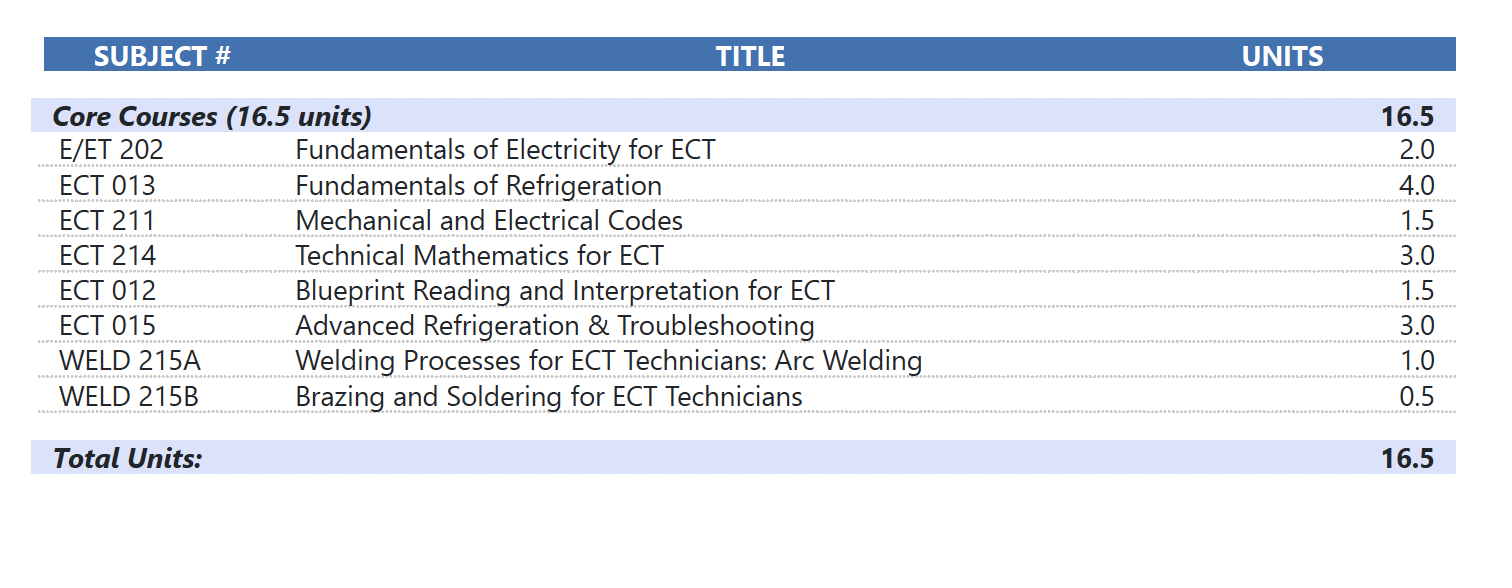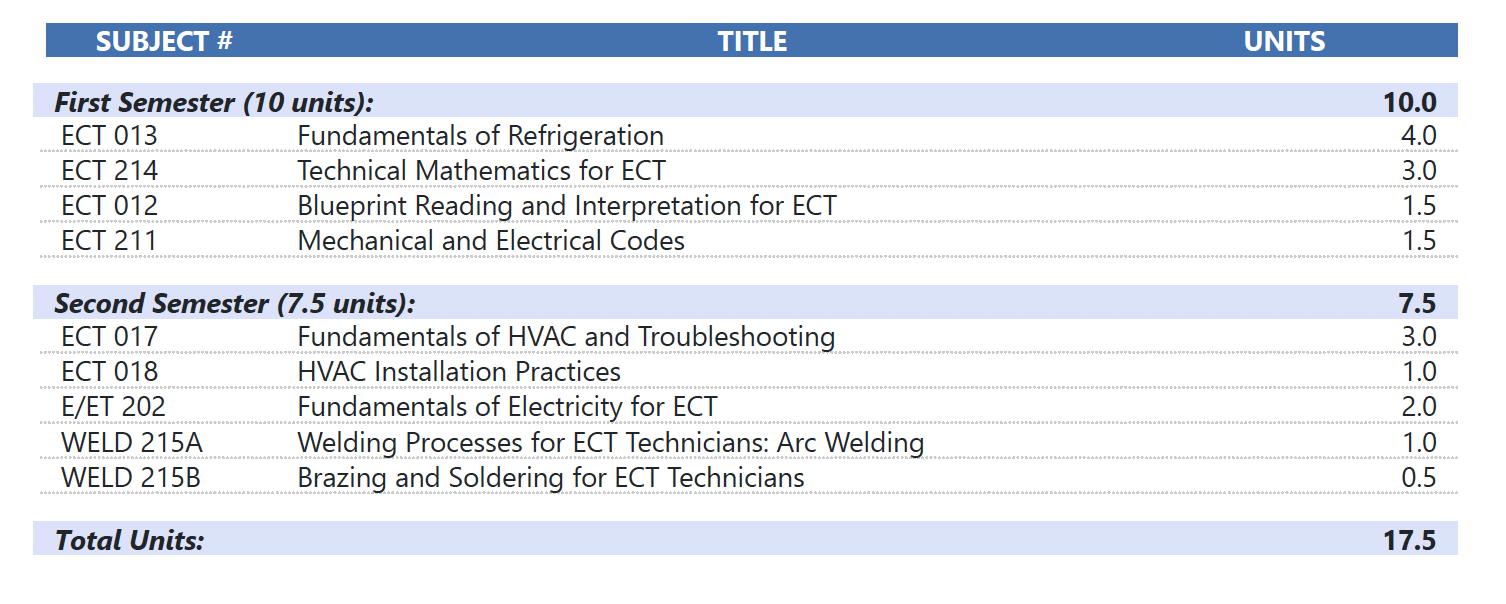Associate Degrees
Building Automation Systems – A.S. Degree
The Associate of Science in Building Automation Systems (BAS) prepares students to install, service, operate, and maintain BAS in commercial buildings. BAS is utilized to control mechanical, energy, lighting, fire safety, and security systems. Students who complete this program can significantly impact building energy consumption. Graduates can seek employment as BAS technicians and engineers with manufacturers, vendors, construction companies, and large facilities such as bio pharmaceuticals, educational and government facilities, hospitals, and office buildings.
Program Learning Outcomes
Upon completion of this program a student will be able to:
- Explain the theory relevant to building automation, including technical math, physics for building science, electricity, computer hardware and software, and techniques for reading specifications.
- Describe the building commissioning process
- Analyze BAS for energy saving opportunities in buildings, including control systems documentation, energy efficient control routines, data analysis, performance monitoring, and energy efficient policies.
Career Opportunities
Graduates can seek employment as BAS technicians, programmers, and sales specialists with control systems and building automation manufacturers, vendors, mechanical contractors, as well as control systems technicians in large facilities, such as university campuses, hospitals, hotels, government facilities, or bio-pharmaceuticals.
Commercial HVAC Systems – A.S. Degree
The Associate of Science for Commercial HVAC Systems prepares students to install, service, operate, and maintain mechanical systems in a commercial setting. Environmental Control Technology is a technical program offering the theoretical, technical, and problem-solving skills essential for employment in the heating, ventilation, air conditioning, and refrigeration industries. Graduates can seek employment as HVACR technicians, installers, building engineers, and facilities operators
Program Learning Outcomes
Upon completion of this program a student will be able to:
- Demonstrate proper and safe use of chemicals, combustible materials, electricity, high-pressure gases, and tools used for mechanical systems.
- Explain the theories for refrigeration, air conditioning, and system components effectively in technical language.
- Demonstrate and apply critical thinking and analysis to mechanical and building systems.
Career Opportunities
Graduates can seek employment as HVACR technicians, installers, building engineers, and facilities operators.
Residential And Light Commercial HVAC & R – A.S. Degree
The Associate of Science for Residential and Light Commercial HVAC & R prepare students to install, service, operate, and maintain HVACR systems in the residential and light commercial settings. Environmental Control Technology (ECT) is a technical program offering the theoretical, technical, and problem-solving skills essential for employment in the heating, ventilation, air conditioning, and refrigeration industry. Graduates can seek employment as HVACR technicians in the construction or service divisions.
Program Learning Outcomes
Upon completion of this program a student will be able to:
- Demonstrate proper and safe use of chemicals, combustible materials, electricity, high-pressure gases, and tools used for mechanical systems.
- Explain the theories for refrigeration, air conditioning, and system components effectively in technical language.
- Demonstrate and apply critical thinking and analysis to mechanical and building systems.
Career Opportunities
Graduates can seek employment as HVACR technicians, installers, building engineers, and facilities operators.
Certificates of Achievement
Building Automation Systems – Certificate of Achievement
The Certificate of Achievement in Building Automation Systems (BAS) prepares students to install, service, operate, and maintain BAS in commercial buildings. BAS is utilized to control mechanical, energy, lighting, fire safety, and security systems. Students who complete this program can significantly impact building energy consumption. Graduates can seek employment as BAS technicians and engineers with manufacturers, vendors, construction companies, and large facilities such as bio-pharmaceuticals, educational and government facilities, hospitals, and office buildings.
Program Learning Outcomes
Upon completion of this program a student will be able to:
1. Describe the building commissioning process
2. Analyze BAS for energy saving opportunities in buildings, including control systems documentation, energy efficient control routines, data analysis, performance monitoring, and energy efficient policies.
3. Explain the theory relevant to building automation, including technical math, physics for building science, electricity, computer hardware and software, and techniques for reading specifications.
Career Opportunities
Graduates can seek employment as BAS technicians, programmers, and sales specialists with control systems and building automation manufacturers, vendors, mechanical contractors, as well as control systems technicians in large facilities, such as university campuses, hospitals, hotels, government facilities, or bio-pharmaceuticals.
Commercial HVAC Systems – Certificate of Achievement
The Certificate of Achievement for Commercial HVAC Systems prepares students to install, service, operate, and maintain mechanical systems in a commercial setting. Environmental Control Technology is a technical program offering the theoretical, technical, and problem-solving skills essential for employment in the heating, ventilation, air conditioning, and refrigeration industries. Graduates can seek employment as HVACR technicians, installers, building engineers, and facilities operators.
Program Learning Outcomes
Upon completion of this program a student will be able to:
- Demonstrate proper and safe use of chemicals, combustible materials, electricity, high-pressure gases, and tools used for mechanical systems.
- Explain the theories for refrigeration, air conditioning, and system components effectively in technical language.
- Demonstrate and apply critical thinking and analysis to mechanical and building systems.
Career Opportunities
Graduates can seek employment as HVACR technicians, installers, building engineers, and facilities operators.
Refrigeration Technology – Certificate of Achievement
Refrigeration Technology is a certificate offering the theoretical, technical, and problem-solving skills essential for employment in the air conditioning and refrigeration industries. Students completing the suggested curriculum can seek employment as air conditioning installers, refrigeration technicians, and building engineers.
Program Learning Outcomes
Upon completion of this program a student will be able to:
- Safe use of materials: Demonstrate proper and safe use of chemicals, combustible materials, electricity, high-pressure gases, climbing ladders and lifting heavy objects.
- Explain concepts related to refrigeration: Explain the theory of Refrigeration and Air Conditioning and the physical properties of components and devices.
- Demonstrate critical thinking, interpersonal, writing, and reading skills working with team members and customers.
Career Opportunities
Building engineer, warehouse specialist, opportunities at the Port area.
Residential And Light Commercial HVAC & R – Certificate of Achievement
The Certificate of Achievement for Residential and Light Commercial HVAC & R prepare students to install, service, operate, and maintain HVACR systems in the residential and light commercial settings. Environmental Control Technology (ECT) is a technical program offering the theoretical, technical, and problem-solving skills essential for employment in the heating, ventilation, air conditioning, and refrigeration industry. Graduates can seek employment as HVACR technicians in the construction or service divisions.
Program Learning Outcomes
Upon completion of this program a student will be able to:
1. Demonstrate proper and safe use of chemicals, combustible materials, electricity, high-pressure gases, climbing ladders and lifting heavy objects.
2. Explain the theories for refrigeration, air conditioning, and system components effectively in technical language.
3. Demonstrate critical thinking, interpersonal, writing, and reading skills working with team members and customers.
Career Opportunities
HVACR technicians, installers in the construction or service divisions.





